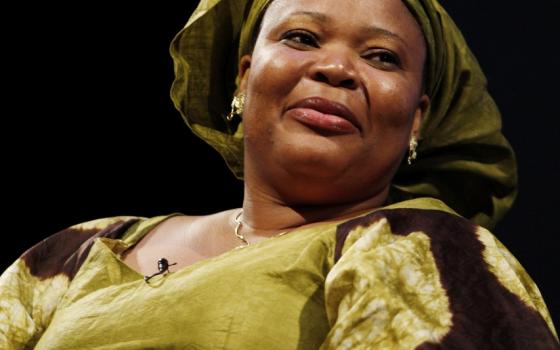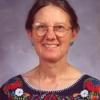“I just don’t know what I am going to do with that girl,” my mother told my Aunt Dorothy, who was visiting our Kansas farm one evening. They thought I was upstairs in bed and asleep. But I have always been curious, and that night I sat at the top of the narrow wooden steps listening to my mother’s bewilderment at yet another one of her six-year-old daughter’s creative and baffling projects.
Last month, the moment came back to me at the OXFAM International Women’s Day meeting and lobbying event in Washington, D.C. As an Oxfam Sister on the Planet addressing climate change, I sat and listened to two poignant stories about women engaged in change despite great odds.
Emiliana Aligaesha, an Oxfam Female Food Hero from Tanzania, spoke about the challenge of becoming a farmer to feed her children and to raise income for school fees after her husband died. Her intuition led her to start using innovative water catchment methods, grow new foods, find local markets and, finally, to creating a women’s farm cooperative. Each creative idea was on display to her community and had received skeptical comments punctuated by the question: “What is that woman doing?” But she persisted and is making a difference.
Leymah Gbowee, a Nobel Peace Laureate, who is best known for leading a nonviolent movement in 2003 among Christians and Muslim women to end Liberia’s 14-year civil war, also met great obstacles. Today as executive director of the Women Peace and Security Network Africa, based in Ghana, she describes that, in all the struggles, “the women came” – to right the wrong, address injustice and transform life.
Today, I sit upon the shoulders and within the grace of many women who faced the question, “What is that woman doing?” while knowing that “yet the women came,” encircling those suffering injustice and poverty with compassionate action. It is a good thing to baffle one’s mother and be one of the women or sisters whom some believe would be better off not baffling family and neighbors. We share this history of action with women and religious sisters in America and around the world.
Each day, as I read numerous reports from the Intergovernmental Climate Change Panel and analysis from economists and scientists about the dire health of Mother Earth, the women appear. Memories of my mother and other women come: “I do not know what I am going to do with that girl . . . . “What is that woman doing?” . . . . and “The Women Came.” The words echo in my ears, fill my work days, dig with me into my garden of spring greens and touch my meditation moments and sometimes wakeful nights.
I believe climate change is the greatest moral, ethical and spiritual challenge, one that touches all other social justice and life issues. Some continue to repeat warnings and jump quickly to thin solutions in order to answer the question, “When will this climate crisis be over so we can get back to normal life?”
Instead, maybe our questions need to be: How will this crisis change me and my community? Am I being invited into new spiritual understandings and expressions of God, theology and life together on our precious planet? And, what do I love that infuses my soul, ministry and community to do more than recycle, or conserve water or grow a garden?
A climate change of soul and swift movement to a new paradigm faces us. What might we do that will get those tongues wagging, “What are those women doing?”
[Sr. Joan Brown, OSF, is a Franciscan sister of the Rochester, Minn., community. Her Kansas farm roots, our New Cosmic Story, Franciscanism and multi-cultural experiences in New Mexico inform her work as executive director of New Mexico Interfaith Power and Light. She may be reached at [email protected].]

